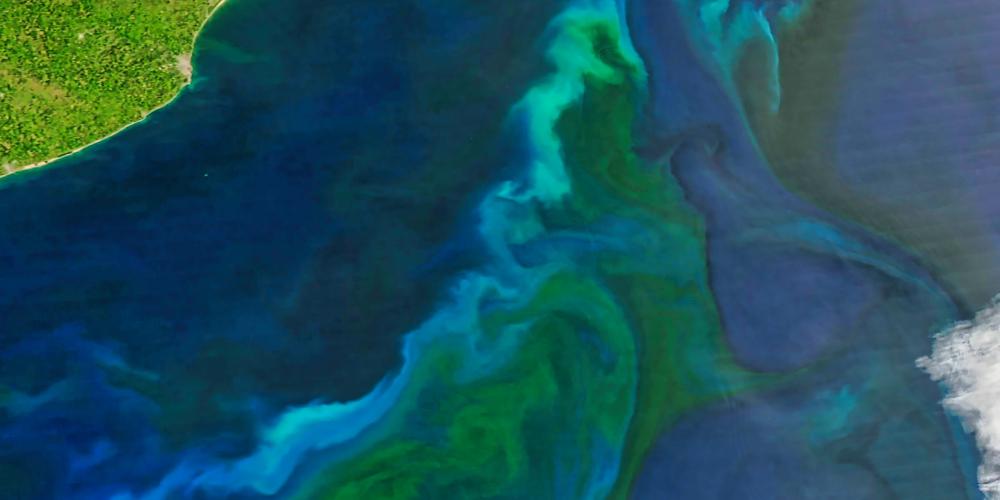
New international research led by Professors Willy Baeyens and Yue Gao of the Vrije Universiteit Brussel (VUB), published in the highly ranked journal One Earth, demonstrates that plankton is not only the basis of the marine food chain but also a crucial natural ally in combating global warming. In their publication, Prevalence of Multi-Micronutrient Limitation of Phytoplankton Growth in the Southern Ocean, the researchers offer new insight into the functioning and resilience of the Southern Ocean ecosystem. They investigated which nutrients drive the ecosystem, focusing in particular on the growth and composition of plankton.
Phytoplankton, or plant-based organisms, functions as the lungs of the ocean. Through photosynthesis, it converts sunlight and CO₂ into oxygen and organic matter—thereby helping to reduce the amount of CO₂ in the atmosphere. The Southern Ocean, which encircles Antarctica, contains relatively low amounts of phytoplankton. “An American researcher at the end of the last century claimed that this scarcity was due to the lack of iron in the ocean,” says Professor Baeyens. “His famous quote was, ‘Give me a tanker of iron and I will create a new Ice Age.’”
According to Baeyens, he was partially correct. In experiments where dissolved iron was introduced into the ocean, scientists observed a temporary but significant bloom of plankton in the affected areas. But the story is more complex. While iron indeed occurs in very low concentrations, Baeyens and Gao found that other essential elements—such as cobalt, zinc, and silicon—are also scarce. Moreover, not all chemical forms of these elements are suitable for plankton uptake. Determining both the presence and the usable forms of these elements at such low levels posed a considerable scientific challenge.
To support their findings, the researchers combined field measurements in the Southern Ocean with computer modelling, integrating the data into an advanced simulation that predicted the evolution of all key nutrients. When the availability of certain nutrients dropped, this also altered the species composition of the plankton. Some types are larger and heavier and sink more rapidly to the deep ocean than smaller, lighter species. “Roughly 25% of plankton sinks out of the ocean's surface layer into the deep sea,” explain Baeyens and Gao. “The amount of CO₂ thus temporarily removed from the atmosphere is enormous when considered across all the world's oceans. The oceans are the largest sink for atmospheric CO₂. Thanks to this so-called biological pump, the carbon bound by plankton can remain stored for hundreds of years. This mechanism is vital to the planet’s climate balance.”
“With our model, we can calculate exactly where, when, and in what quantities certain nutrients should be added to the ocean to stimulate optimal plankton growth,” the researchers continue. “Moreover, we can maximize carbon capture by focusing on plankton species that sink more efficiently to the deep sea. Our refined model allows us to experiment much more precisely with the optimal chemical forms in which these substances should enter the ocean. In doing so, we could buy ourselves considerable time—potentially several hundred years—in combating climate change.”
Today, scientists are far better equipped to monitor and mitigate the effects of climate change on the Southern Ocean ecosystem. “We now understand that the ocean is not a passive sponge, but a dynamic system in which tiny organisms and their chemical processes play a decisive role in the global climate,” the authors conclude. “It is vital to continue this line of research, particularly through pilot-scale fertilization trials. This would allow us to guide such interventions in a scientifically responsible manner—boosting plankton biomass and removing more carbon dioxide from the atmosphere. In this way, we can help limit global warming and contribute to the long-term sustainability of our environment.”
Link to publication: https://authors.elsevier.com/a/1lOsE9C%7EIu7nb8